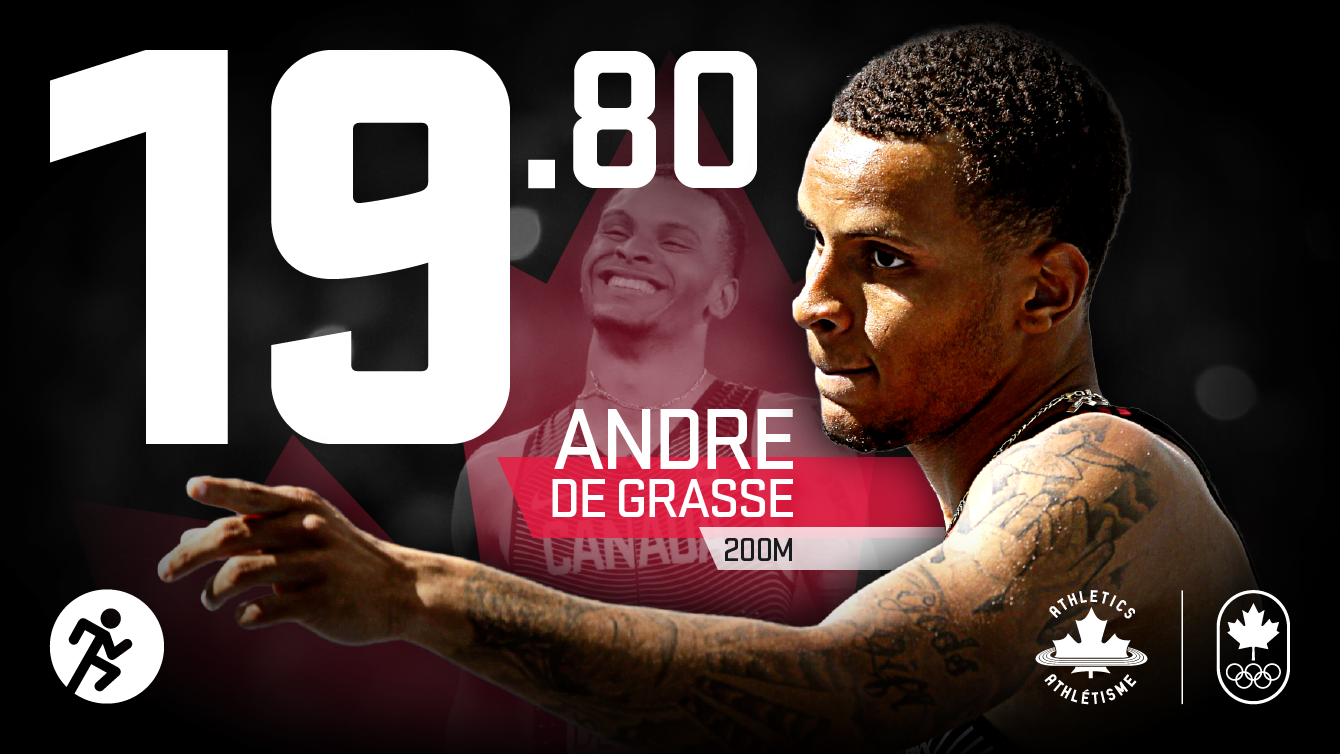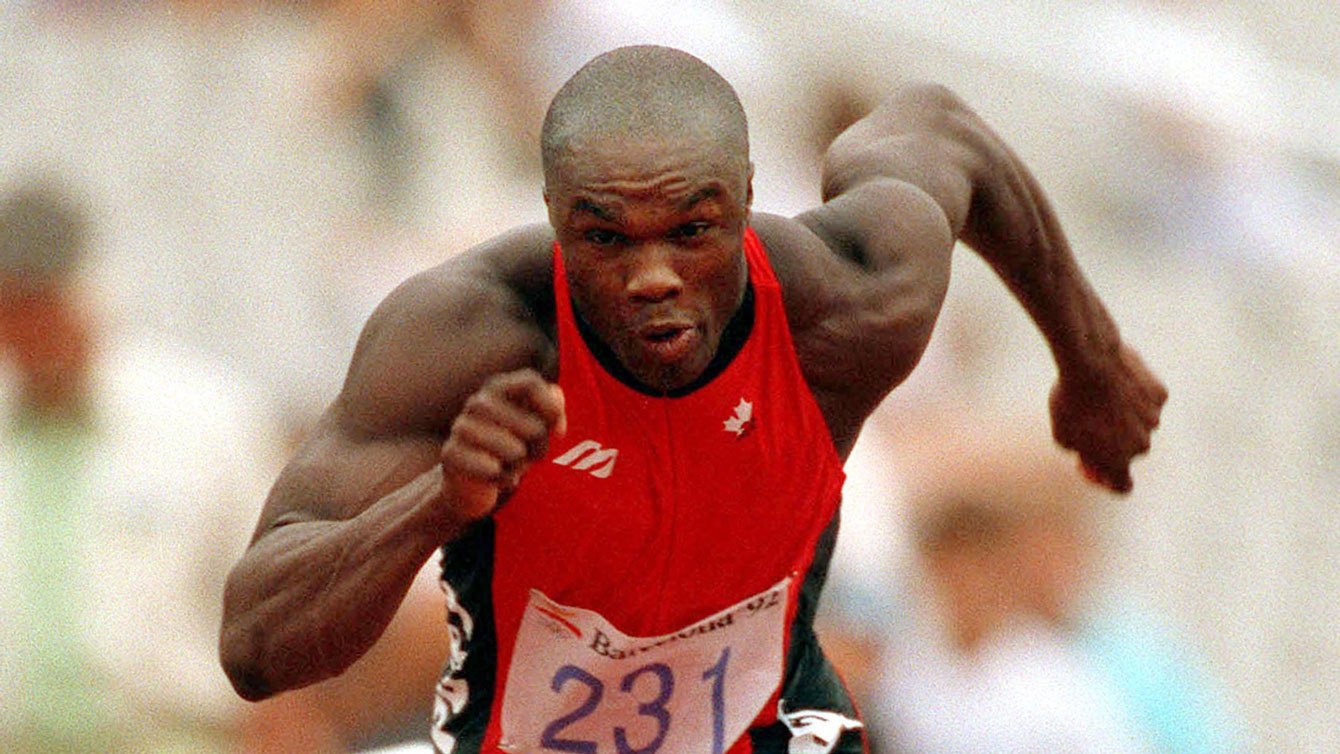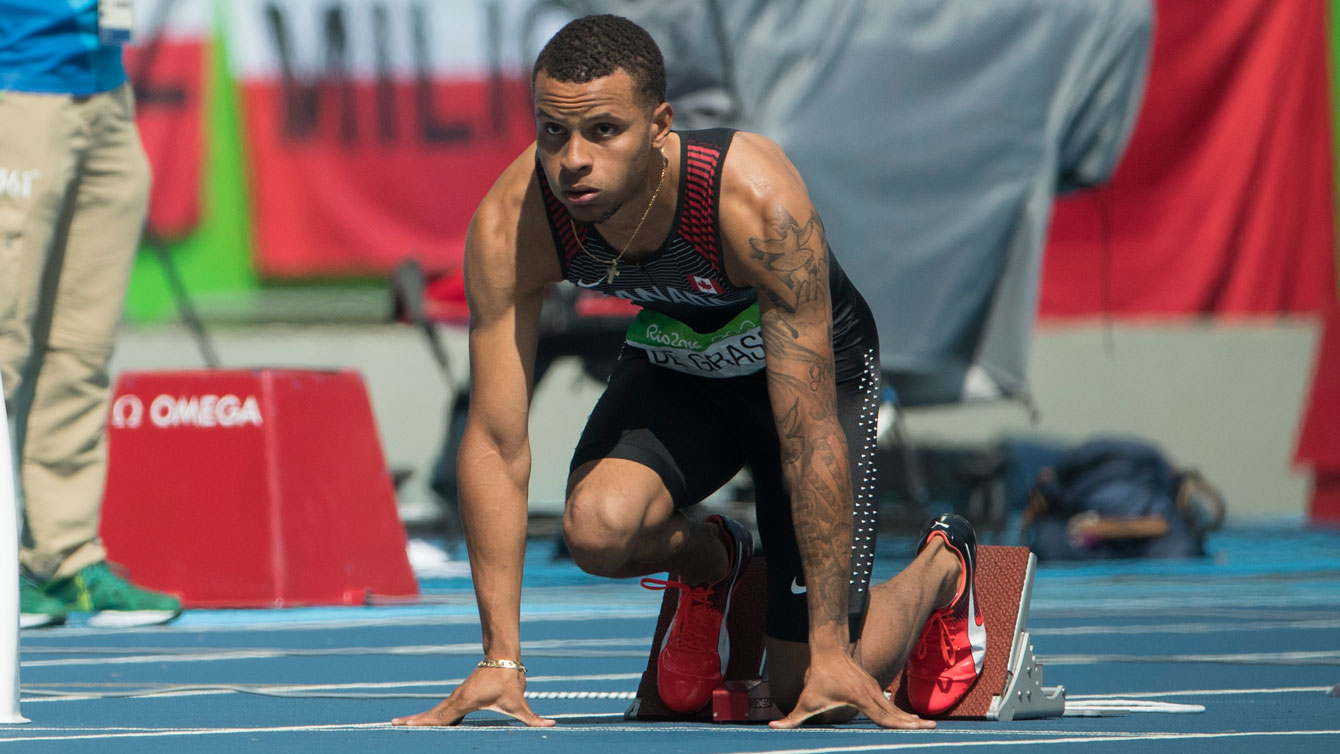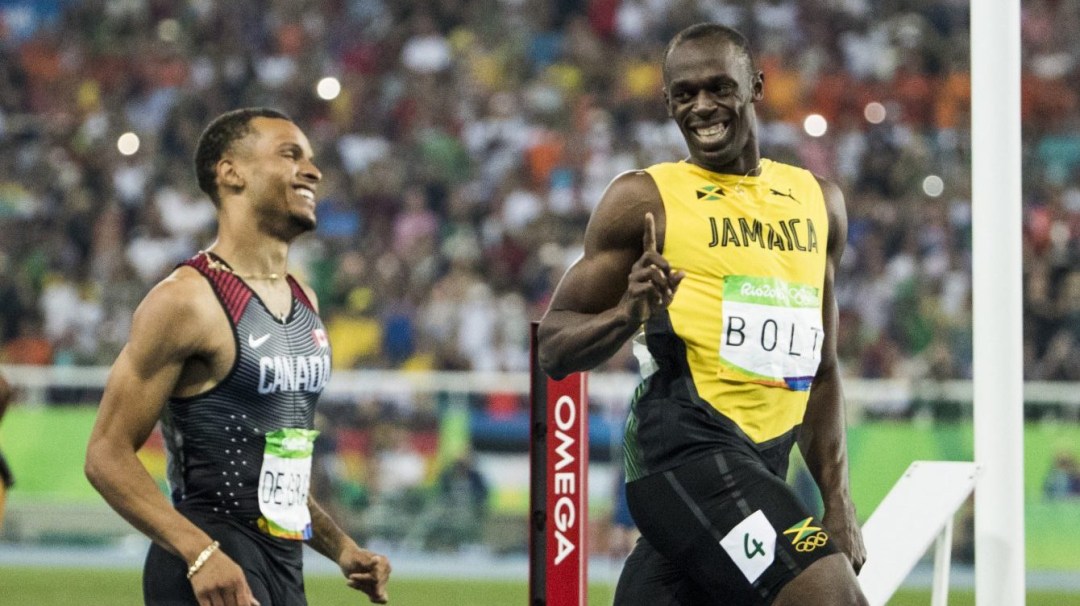De Grasse and diversity gives Olympic 200m final a new look at Rio 2016
The men’s Olympic 200 metre final goes off Thursday night and there are a couple of things about it that are unfamiliar.
The first difference Canadians should notice between this final versus previous ones is that there’s one of their own in the race, Andre De Grasse. Not since Atlee Mahorn made the 200m final in Seoul 1988 (finishing fifth in 20.39 seconds) has there been a Canadian in the men’s Olympic 200m final.
Once upon a time Canadians were quite strong in the Olympic 200m. Bobby Kerr won gold in London 1908 and Percy Williams did the same 20 years later in Amsterdam. Recent history has been less kind, but there’s great hope in De Grasse, the 100m bronze medallist from these Games, who set a national 200m record in the semifinals in 19.80. He will start from lane four.
RELATED: (In Photos) Bolt v. De Grasse in 200m semis
RELATED: De Grasse sets 200m Canadian record in Rio
Another factor that distinguishes this 200m final from previous ones is that there are eight competitors from as many different countries. According to records, there have never been such a geographically diverse 200m men’s final. There certainly won’t be a podium sweep from a particular nation often happens in this event.
At London 2012, Jamaica swept the men’s 200m podium with Bolt leading Yohan Blake and Warren Weir. That will not happen in Rio as Bolt, the world record holder of 19.19 in this distance, is the lone Jamaican starting from lane six.

Andre De Grasse ran the Olympic 200m semifinal at Rio 2016 in 19.80 seconds to break the Canadian record on August 17, 2016.
Before Bolt came along, the Americans dominated this event. In Athens 2004, USA swept with Shawn Crawford, Bernard Williams and Justin Gatlin sharing an all-American podium. In Rio, Lashawn Merritt – a 400m Olympic champion from Beijing – is the only American in the 200m final at lane five.
RELATED: The Bolt – De Grasse ‘bromance’
RELATED: (In Photos) De Grasse wins 100m bronze
Despite aforementioned differences, some thing remain constant. Along with Bolt, a couple of returning Olympic finalists from London also made the grade in Rio. Churandy Martina of the Netherlands, – his third consecutive 200m final starting with Beijing 2008 – will be in lane eight; Christophe Lemaitre of France will be tucked in lane seven looking to make up the stagger on Martina.

Atlee Mahorn at Barcelona 1992 in the 200m. Prior to Andre De Grasse, Mahorn at Seoul 1988, was the last Canadian Olympic 200m finalist.
Alonso Edward of Panama surprised the world winning heat three of the semifinals ahead of Gatlin and Blake (neither of whom qualified for the final). Edward will be in lane three.
Great Britain didn’t have a men’s 200m finalist at home in London four years ago. Adam Gemili will try to make up for that lost opportunity from lane two.
Turkey is a rare addition to the men’s 200m final but will be represented in Rio by Ramil Guliyev in lane one.

Andre De Grasse in his block for the Olympic 200m heats on August 16, 2016.
Only Bolt (19.78), De Grasse (19.80) and Merritt (19.94) ran the 200m semifinals in under 20 seconds, though all eight men in the final field have posted a sub-20 mark at some point in their career.
The last time anyone made an Olympic podium running slower than 20 seconds was in Athens, when Williams (20.01) and Gatlin (20.13) won silver and bronze.
At Sydney 2000, all three 200m medallists ran over 20 seconds, with Konstantinos Kenteris of Greece winning in 20.09, the slowest gold medal time in the event since Pietro Mennea of Italy won in 20.19 at the boycotted Moscow 1980 Olympic Games.
While De Grasse and a list of newcomers seems to be the only constant going into the 9:30 p.m. ET race in Rio de Janeiro’s Olympic Stadium.




